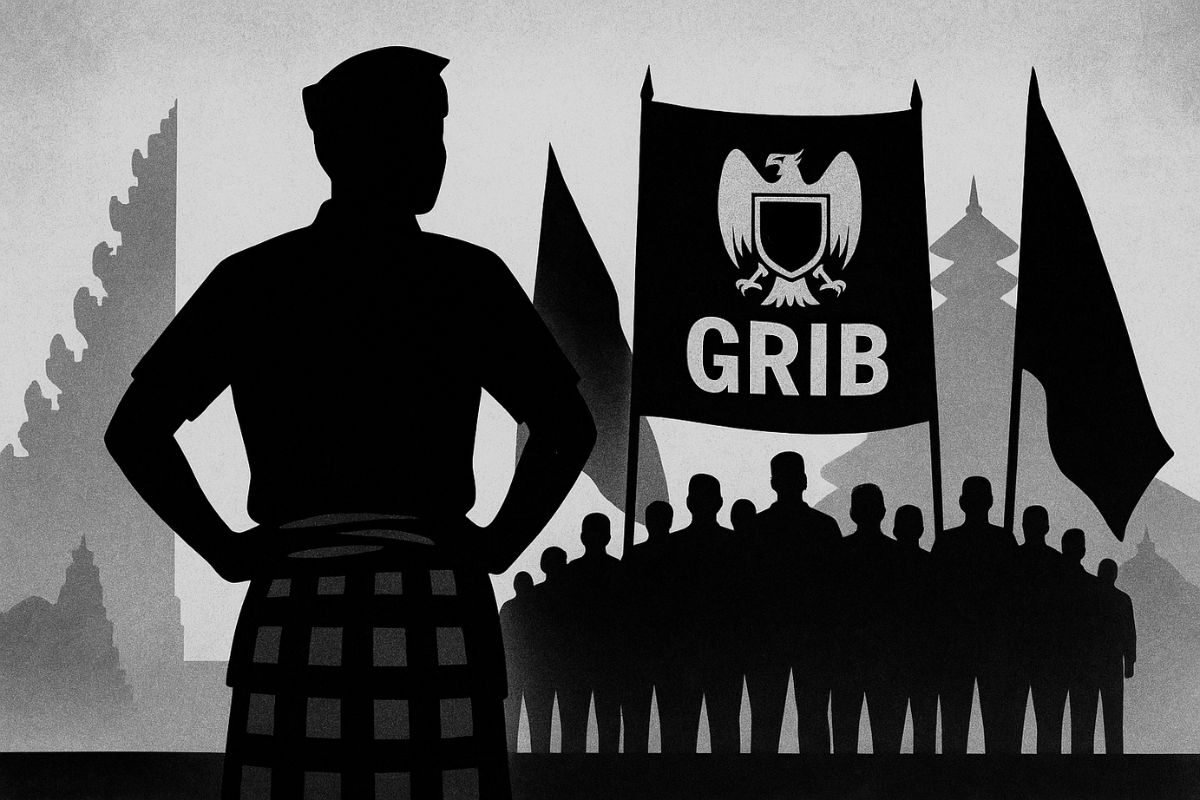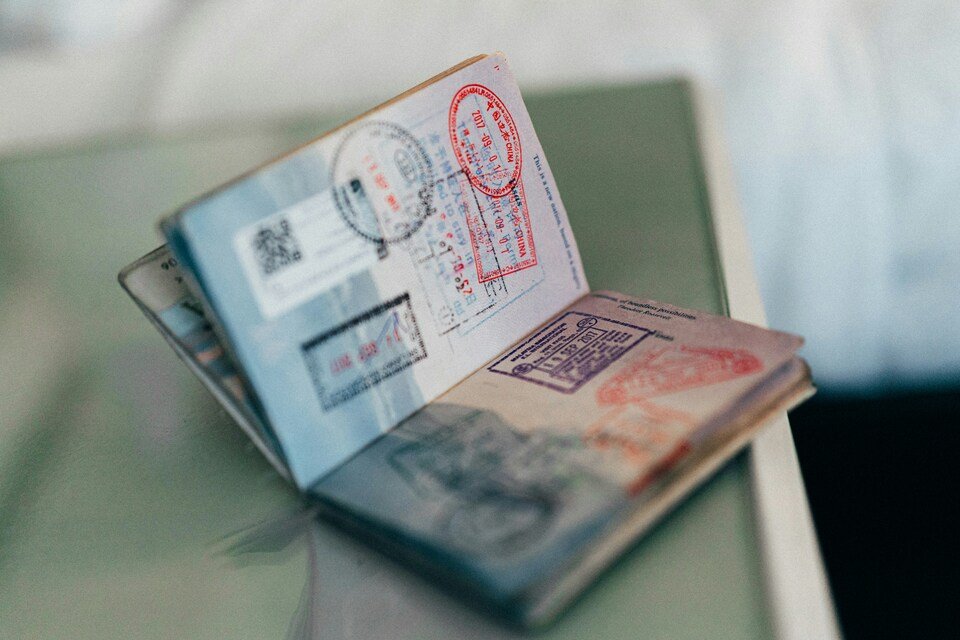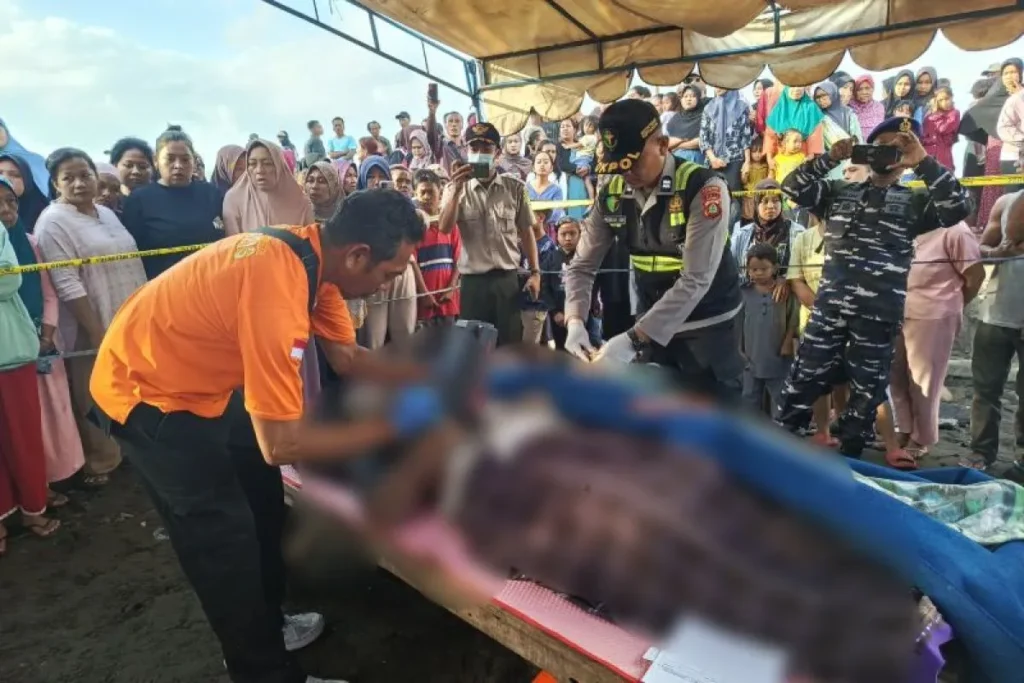
A Jakarta-based nationalist organization with a history of violent flare-ups and political muscle-flexing is facing stiff resistance in Bali, where local leaders and cultural authorities have closed ranks to keep the group out.
The organization, Gerakan Rakyat Indonesia Bersatu—widely known by its acronym GRIB Jaya—has ignited public backlash after its Bali chapter was quietly inaugurated last month.
Images of the induction ceremony, showing the group’s insignia flanked by flags of the nationalist Gerindra Party, spread quickly on social media, prompting concern among Balinese officials and community leaders.
What is an “ormas”?
In Indonesia, GRIB is considered an ormas.
In Indonesia, the term ormas refers to organisasi masyarakat, or community organizations. These are legally recognized civic groups that can operate for a variety of purposes—religious, social, cultural, or political.
While many function peacefully and play a legitimate role in civil society, others have developed reputations for aggressive tactics and quasi-militant behavior.
In some cases, ormas act as political foot soldiers or power brokers, forming close ties with officials and law enforcement, sometimes skirting the line between civic activism and intimidation.
Their presence is often controversial, particularly in regions like Bali where traditional institutions such as pecalang—customary village security officers—already maintain public order.
Deputy governor rejects the group
Deputy Governor I Nyoman Giri Prasta was unequivocal.
“We already have pecalang,” he said, referring to Bali’s centuries-old community security force. “There’s no need for outsiders claiming to enforce order here.”
GRIB Jaya is no ordinary civic group. Founded in 2011 by Rosario de Marshall, better known as Hercules—a former Jakarta gangster with deep ties to the political elite—the group brands itself as a patriotic movement committed to unity and national order. But its track record paints a more complicated picture.
Over the past year alone, GRIB Jaya has been involved in violent confrontations in at least three provinces.
In January, its members clashed with the youth militia Pemuda Pancasila in Central Java, leaving 12 injured and several vehicles destroyed. In April, a GRIB Jaya faction in Depok, West Java, torched a car and assaulted police officers during an internal feud, according to local authorities.
In West Java, the group’s regional chairman threatened to “mobilize tens of thousands” of members to the governor’s office in protest over perceived political slights.
Critics say such episodes reflect a pattern: leveraging mass mobilization to intimidate or retaliate against officials seen as unsupportive.
GRIB’s social significance in the nation
To outsiders, GRIB Jaya may resemble a fringe organization. But in Indonesia’s often murky nexus of politics and civil society, such groups—legally classified as organisasi masyarakat, or ormas—wield real influence. Some, like GRIB Jaya, operate as grassroots political machines, blending nationalism, street muscle, and personal loyalty into potent, if unstable, entities.
Ormas groups are deeply embedded in the Indonesian political landscape. They can register with the Ministry of Home Affairs, receive funding, and even participate in government-sponsored events.
While many promote religious, cultural, or humanitarian aims, others occupy a grey zone: part vigilante, part political proxy.
Hercules, the group’s founder, is emblematic of this blurred line. Once a feared figure in Jakarta’s criminal underworld, he transitioned into politics during the post-Suharto reform era, aligning himself with Prabowo Subianto, now Indonesia’s president. GRIB Jaya has openly supported Prabowo since his first presidential run in 2014.
GRIB in the face of Bali’s traditions
In Bali, however, such affiliations hold little sway against the island’s powerful traditional institutions.
The pecalang—village-based security officers tasked with safeguarding local customs and ceremonies—command far more trust than outsiders bearing flags and slogans.
“Bali is not a place for political theatrics,” said one senior desa adat official, who spoke on condition of anonymity. “We maintain peace through custom, not confrontation.”
That sentiment appears to be widely shared.
The inauguration of GRIB’s Bali leader, Yosef Nahak, triggered a rare show of consensus: opposition from local governments, cultural councils, and religious figures. Even members of the Balinese Hindu clergy voiced unease over the group’s presence.
Whether the backlash will deter GRIB Jaya’s expansion remains unclear. The group claims a sprawling network of nearly 1.200 branches across the archipelago, and its leadership has shown no sign of backing down.
But in Bali, where tradition often trumps politics, the road ahead looks anything but smooth.










